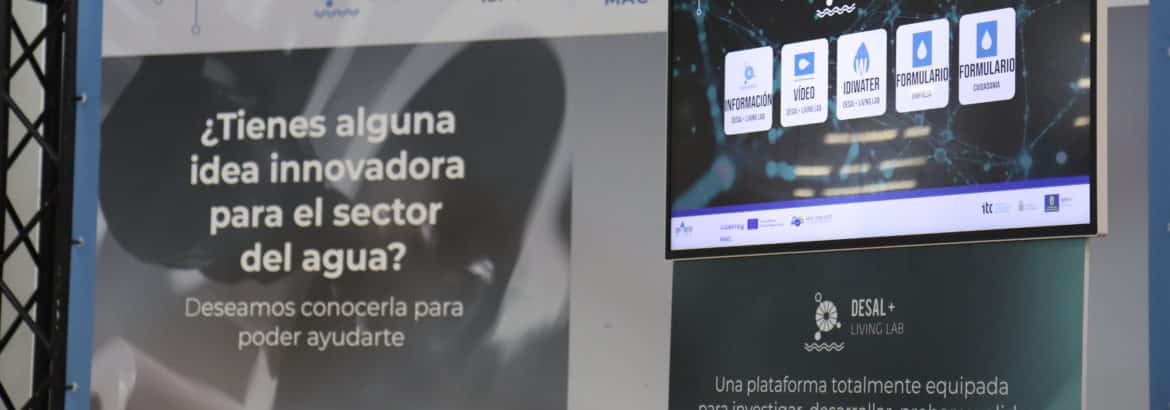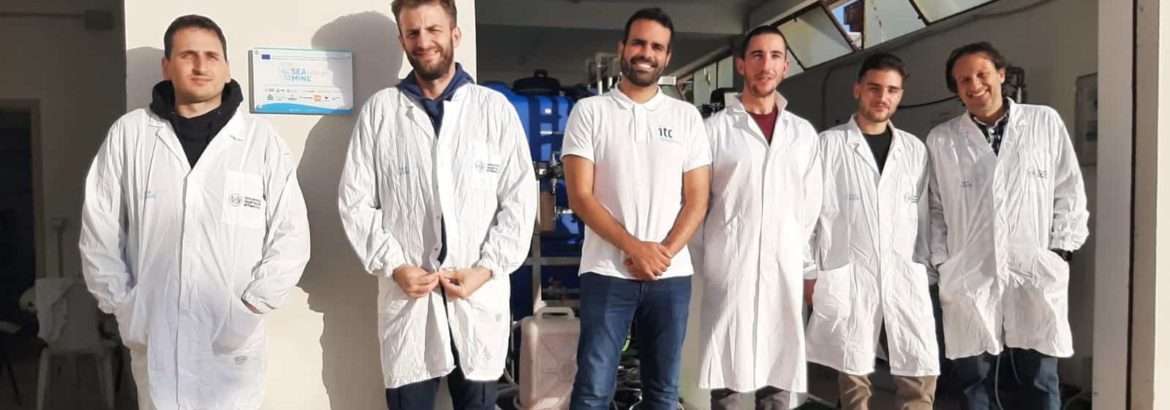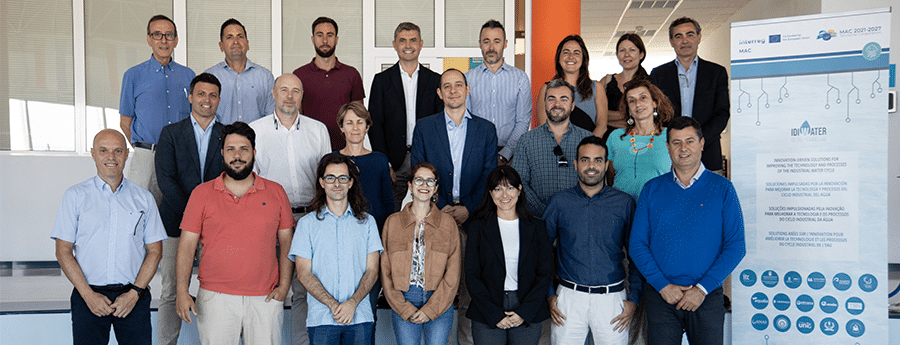In a significant technological advancement, the Canary Islands Institute of Technology (ITC) has collaborated with HACH to introduce a state-of-the-art in-line Calcium and Magnesium ion analyser at its Nanofiltration pilot plant.
- Blog News
- Blog News
El proyecto IDIWATER se presenta en la Feria Internacional Canagua y Energía
Miembros de la plataforma DESAL+ Living Lab, ecosistema público-privado que aglutina a investigadores, empresas e instituciones a nivel regional, ha estado presente en la 14ª feria Canagua y Energía, celebrada en Las Palmas de Gran Canaria entre el 27 y el 29 de noviembre, con 89 entidades expositoras y más de 1.500 visitantes. El proyecto IDIWATER se ha dado a conocer en la reciente 14ª edición de la Feria Canagua y Energía. Tanto el Instituto Tecnológico de Canarias (ITC), con su stand, como con el punto de información del proyecto, realizado en colaboración con la Sociedad de Promoción Económica del Cabildo de Gran Canaria (SPEGC), y a las diferentes presentaciones y mesas redondas en las que se ha participado, se pudieron presentar las principales líneas de trabajo que ahora se afrontan en este nuevo proyecto vinculado a la industria del agua, en general, y en el sector de la desalación, en particular. Baltasar Peñate, jefe del departamento de agua del ITC y coordinador de DESAL+ Living Lab, presentó, durante la apertura de la mesa redonda “Soluciones integrales y portátiles adaptadas para atender los retos de la sequía”, los principales resultados de la planta piloto DESALRO 2.0, que ha logrado reducir el consumo del proceso de desalación por debajo de los 2,0 kWh/m3. Canagua y Energía ha servido como carta de presentación de uno de los nuevos proyectos en los que se trabaja bajo el paraguas del Living Lab: IDIWATER. Esta iniciativa, que busca soluciones impulsadas por la innovación para mejorar la tecnología y los procesos del ciclo industrial del agua, contó con un puesto de información interactivo en el que los visitantes pudieron, no solo conocer más sobre el proyecto, sino también hacer llegar sus conocimientos e iniciativas para mejorar el sector del agua. Varios socios del proyecto estuvieron presentes también en el evento gracias a su participación en distintas sesiones de las jornadas técnicas que se realizaron, concretamente: Emalsa, Canaragua y Aqualia, con representantes en el bloque “Estrategias y proyectos en materia de digitalización en el ciclo integral del agua. Oportunidades y retos”. Canaragua, Elmasa y Emalsa, con representación en la Mesa redonda “Costes vs. precios del agua en Canarias: de la teoría a la práctica”. IDIWATER es un proyecto cofinanciado en un 85% mediante fondos FEDER a través del programa europeo Interreg MAC 2021-2027 y cuenta con un periodo de ejecución de 48 meses, hasta septiembre de 2028.
- Blog News
ITC and University of Évora researchers explore brine valorisation innovations during Sicily visit for the SOL2H2O Project
A delegation from ITC and University of Évora visits the University of Palermo with the aim of learning firsthand about its pioneering technologies in brine valorization from desalination plants. They also had the opportunity to explore the magnesium and calcium precipitation prototype that will be included in the pilot plant for the Sol2H20 project.
- Blog News
ITC hosts the second Fast-Track School focusing on implementation, experimental campaigns, monitoring and data assessment
In parallel with the 4th Sol2H2O Project Meeting, the 2nd Fast-Track School took place in Pozo Izquierdo, Gran Canaria (Spain), on the 25th and 26th of September. As a continuation of the first FTS that was focused on the State of the Art (SoA) of the different technologies, this second FTS contemplated the Beyond SoA (focusing on implementation, experimental campaigns, monitoring and data assessment). Hosted by ITC, and with speakers from all the consortium partners, had 42 attendees (online and onsite), including young, senior and candidate young researchers. ITC leads WP3 of Sol2H2O were up to three Fast-Track Schools (FTS) will be developed. Each edition includes Solar-driven WP&WT technologies and brine treatment processes focused lectures and brainstorming sessions. This FTS are meant to provide evolutive training on scientific, research methodology and result assessment topics to the Industry, Candidate and Young Researchers, providing support to their respective evolution towards becoming Young and Leading Researchers in these fields. Besides the presentations, the attendees had a visit to the ITC facilities and the Telde II SWRO desalination plant and the Fast-Track School ended with a researcher’s brainstorming session for onsite attendees. The third and last FTS will be held in the University of Évora on the first week of February 2025, and will provide Technology benchmarking and Exploitation contents to CYR and YR. Sol2H20 project is co-financed by HE | HORIZON-CSA/HORIZON-AG, and is integrated into the DESAL+ Living Lab Platform (desalinationlab.com).





